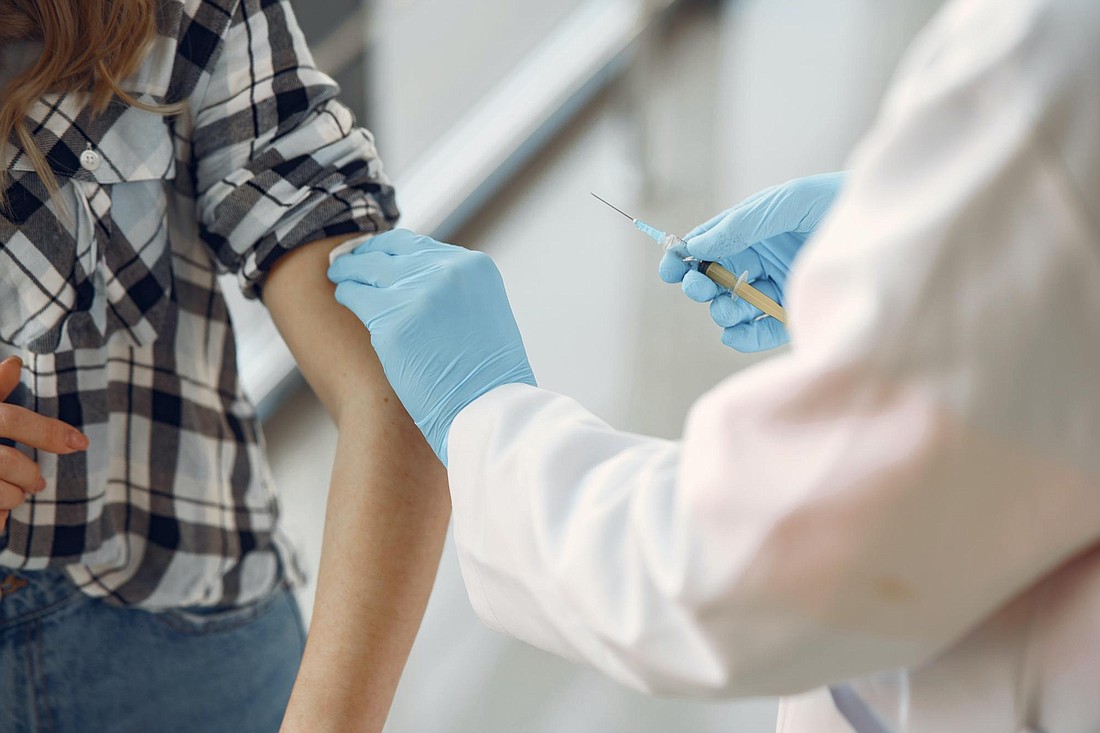- April 5, 2025
Your free article limit has been reached this month.
Subscribe now for unlimited digital access to our award-winning local news.

The omicron variant of COVID-19 isn't yet dominant in the community, but it soon will be, and cases and hospitalizations are again trending upward, Florida Department of Health-Flagler Medical Director Dr. Stephen Bickel and Health Officer Bob Snyder said on Flagler Broadcasting's "Free For All Friday" on Dec. 17.
"Cases, hospitalizations and deaths, unfortunately, are up in every state, including Florida," Snyder said. "Flagler might be in a little bit better shape than some of the other counties, but we’ve seen an uptick the last five weeks in a row."
"If you’re not vaccinated, the chances of you getting omicron are really high. ... This is really time to reassess your risk if you’ve been on the fence."
— Dr. STEPHEN BICKEL, Florida Department of Health-Flagler medical director
Flagler had 79 cases reported in the past week, he said, and six people had been admitted to the hospital for COVID-19 on Thursday.
"Keep in mind, that compares favorably to the end of August, when we had over 100 on some days," Snyder said.
In the last week, two school staff members have tested positive, as have 14 students.
Flagler has had 14,715 COVID-19 cases and 277 deaths since the pandemic began.
More people are getting vaccinated: 75,749 people, making up 68% of the eligible population.
Flagler is also starting to see influenza cases, with nine last week.
Omicron is doubling every three days.
"So it soon will be dominant around the country," Snyder said. "It’s not as severe, but very, very contagious. … and it’s a little bit better at evading immunity compared to delta."
He urged residents to get vaccinated and get booster shots.
"That will afford us all with the best protection with the new variant around the corner here, already spreading in the U.S.," he said.
Bickel said that Europe — which, throughout the pandemic, has been a harbinger of what's about to hit the U.S. — is seeing a lot of cases, but, with the exception of Germany, comparatively few deaths.
That might mean that the U.S. will see a situation where case rates rise, but hospitalizations and deaths don't.
"The problem for that is we have a relatively low, compared to other developed countries, vaccination rate," Bickel said. "Omicron, it replicates in the body extremely quickly, especially in the upper airways. So if it hits an unvaccinated person who’s got comorbidities like diabetes etc., middle-aged — it could put you right in the hospital."
Experts are still debating whether omicron is actually less virulent than other variants, or is it just it’s hitting a population with more baseline immunity, Bickel said.
Protective measures like mask-wearing and social distancing still help with omicron, but much less so than vaccination, he said.
"The take home message for me right now is: If you’re not vaccinated, the chances of you getting omicron are really high," Bickel said. "This is really time to reassess your risk if you’ve been on the fence."
Your free article limit has been reached this month.
Subscribe now for unlimited digital access to our award-winning local news.